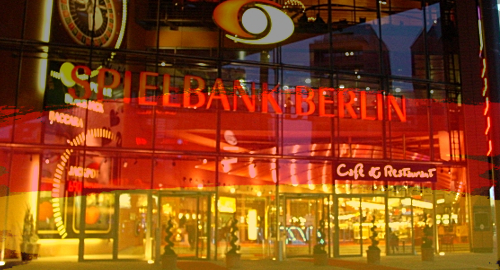Germany’s land-based casinos saw their gaming revenue jump by more than one-quarter in 2019, hitting heights the market hasn’t seen in over a decade.
 Figures released this week by the Deutscher Spielbankenverband (German casino association) show the country’s brick-and-mortar casino operators generated gross gaming revenue of €860.2m in 2019, a 25.6% improvement over 2018’s result. The casinos also enjoyed a serious spike in visitation, with 6.4m customers walking through their doors last year, up 13.2% from 2018.
Figures released this week by the Deutscher Spielbankenverband (German casino association) show the country’s brick-and-mortar casino operators generated gross gaming revenue of €860.2m in 2019, a 25.6% improvement over 2018’s result. The casinos also enjoyed a serious spike in visitation, with 6.4m customers walking through their doors last year, up 13.2% from 2018.
Slot machines continued their dominance of the German casino market, with last year’s slots revenue jumping 32% to just over €700m, while table games enjoyed a more modest rise of 4.1% to slightly more than €160m.
The casino association’s CEO Otto Wulferding said 2019’s results showed that the country’s land-based industry had “finally bottomed out” and gotten back close to a level it hadn’t seen since 2007, when the market’s annual revenue and visitation peaked at €923m and 8.9m, respectively.
That peak came in the last year before the global economic meltdown kicked off and thoroughly depressed casino-goers’ discretionary income. Germany’s problem is anything but unique; Nevada casinos have also yet to regain their pre-recession form.
Despite 2019’s surge, Wulferding continued to rage against the “illegal online game providers” that German casinos also blame for their decade-plus revenue slump. Wulferding’s comments came just one day before German’s 16 states reportedly agreed to drop their prohibition against online casino and poker products by mid-2021.
Wulferding suggested that his group’s members would be very interested in joining a legal online casino market. Wulferding said he assumed that German casino “competence must extend into the digital world” when regulators start issuing online gambling licenses.
Germany’s licensed casino market is neatly split between publicly owned operators (nine companies running 35 venues) and privately held operators (10 companies running 30 locations).





